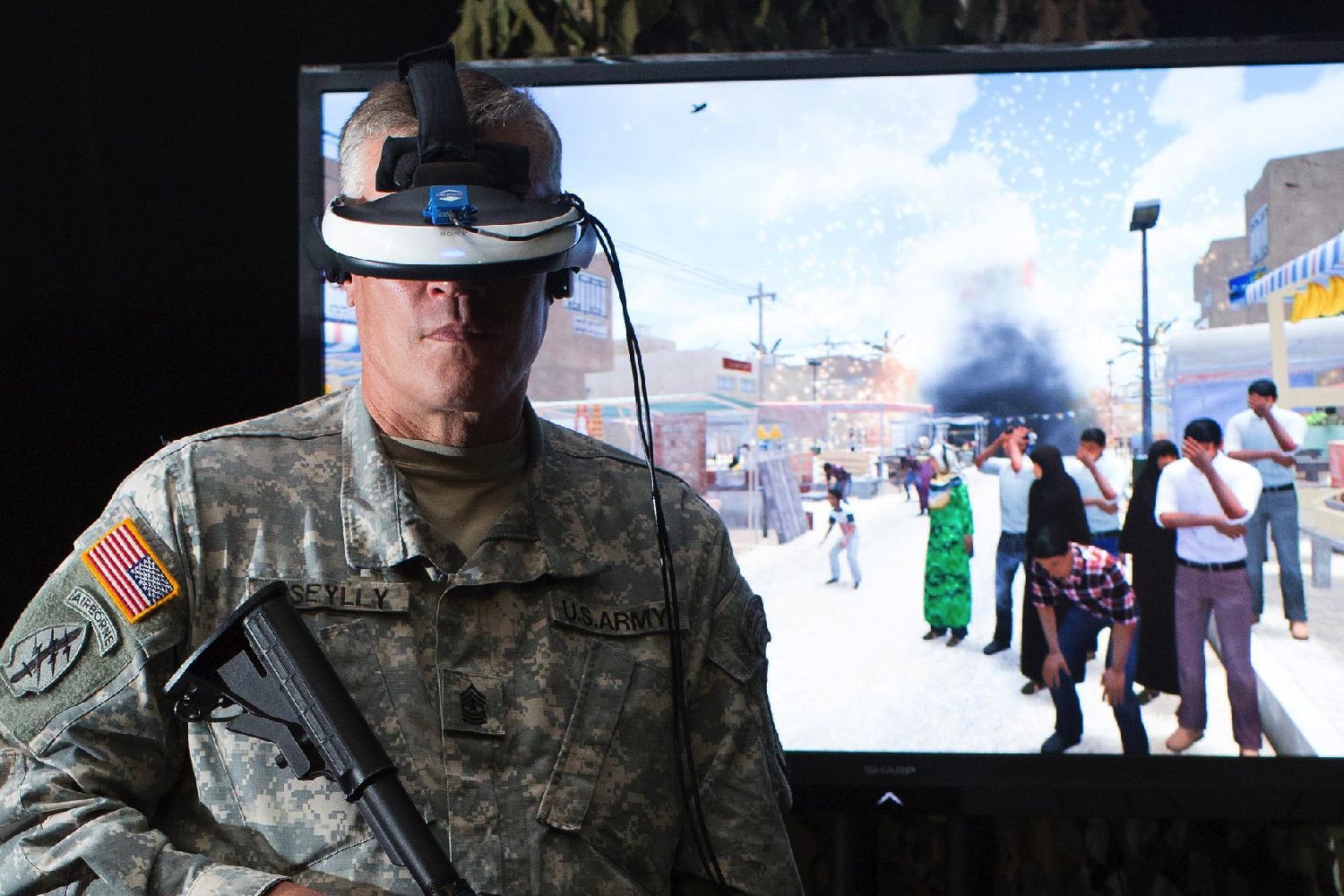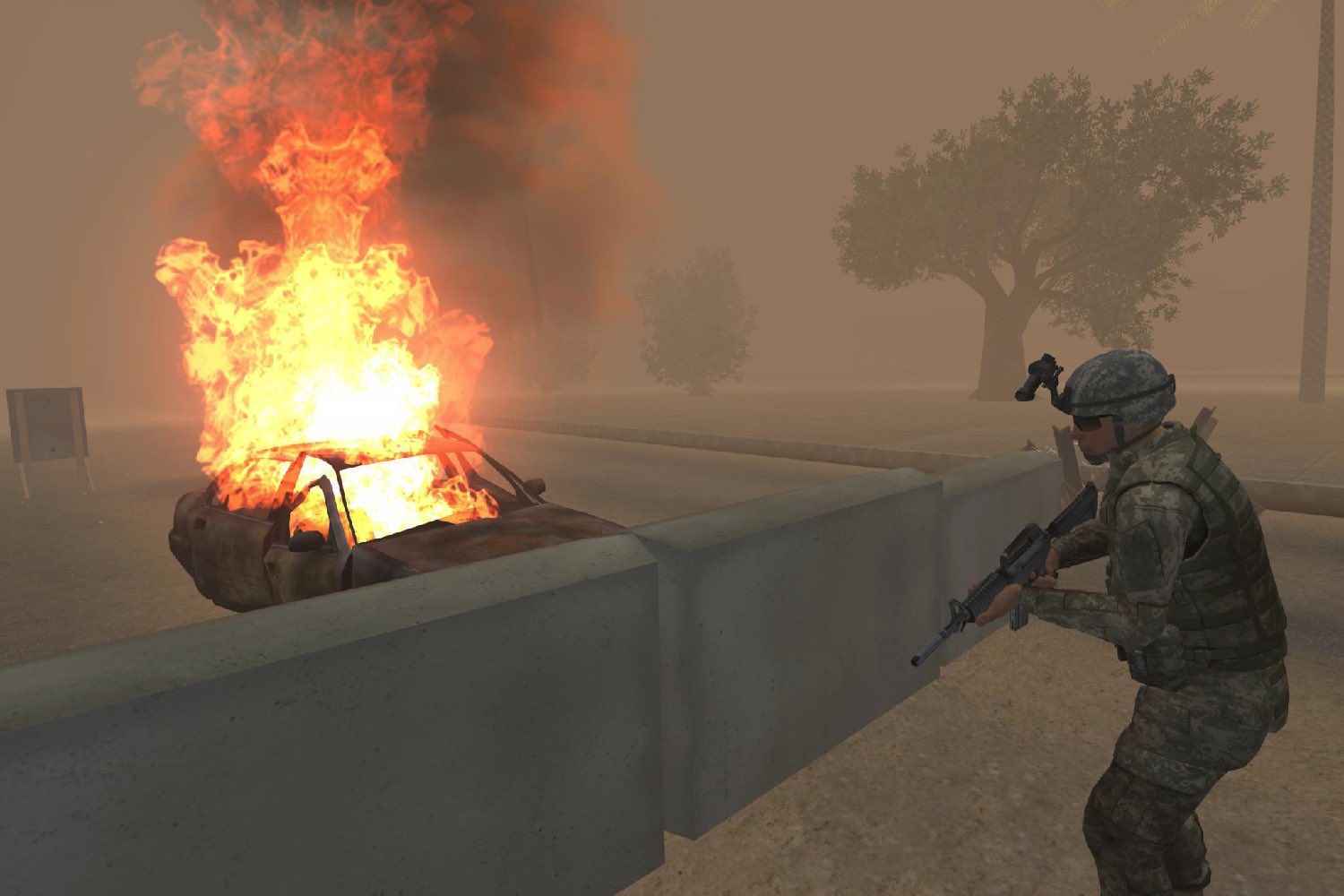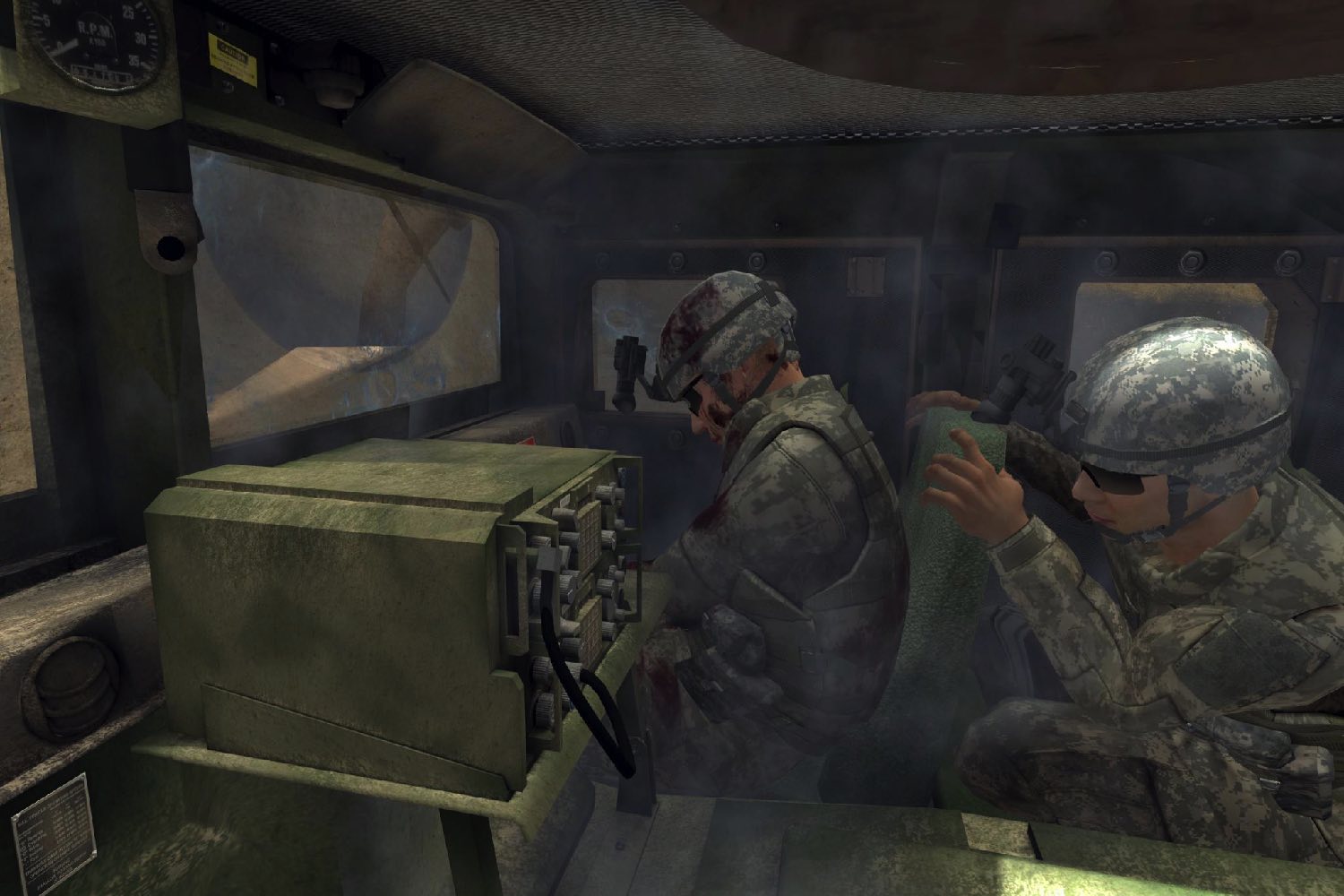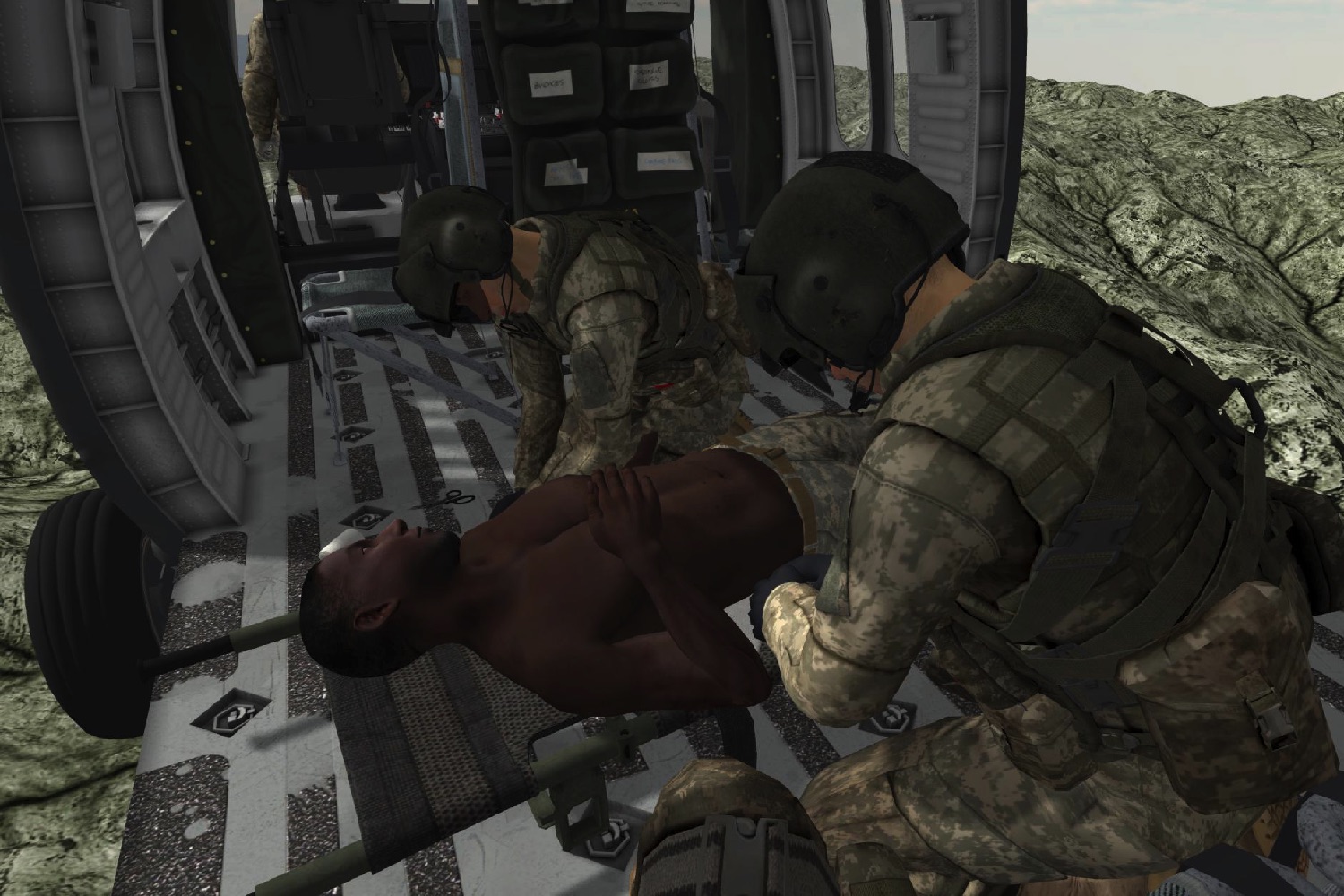Dr. Albert “Skip” Rizzo, director of medical virtual reality at the University of Southern California Institute of Creative Technologies, wants to help them. For more than a decade, Rizzo has been working to create VR worlds designed to help war veterans confront traumatic situations from their past.
There are currently 14 such virtual worlds, resembling scenes from various contemporary war zones around the world. These relatively blank canvases can then be updated to reflect situations specific to an individual — with clinicians adding customized elements like helicopters, small-arms fire, and more. The therapy involves patients donning VR headsets and experiencing recreations of the events that haunt them.
“It can sound counterintuitive when people first hear about this,” Rizzo tells Digital Trends. “But the goal is to help patients to confront and process difficult emotional memories in a safe, well-supported environment. We revisit the stimuli which surrounded the trauma many, many times. As a result, the stimuli no longer invokes the same sense of threat because people see that nothing really bad happens. It was bad when it happened, yes, but it’s not dangerous now. People are always going to feel sad about traumatic events, but they’re not going to be waking up screaming in the middle of the night. It’s a method of processing things in a way that people haven’t done before.”
In fact, the use of VR simply adds a 21st-century spin to a well-documented older technique called prolonged exposure therapy, in which therapists ask patients to imagine the scenario that affected them. With virtual reality, however, it’s possible to go further than simply imagining.
Now Rizzo wants to use his lab’s expertise to build a scenario to fit Vietnam veterans. “Whether it’s due to an aging population which is becoming more emotionally vulnerable; people retiring from work and suddenly having more time on their hands; people nearing the end of their life and wanting closure on something which has always haunted them — whatever reason it is, we feel that it’s important that Vietnam-era vets have access to the same forms of treatment we’ve shown to be effective with other veterans of war,” Rizzo says.
The campaign is seeking a lofty $500,000 to develop a system specifically designed to replicate the sounds, scenes, and other emotional trigger-points of the Vietnam War environment. This will then be made it freely available to clinicians. “We just need the funding,” the project’s page notes.
Provided it has the impact Rizzo believes it will, there surely can’t be too many more worthy crowdfunding projects.







